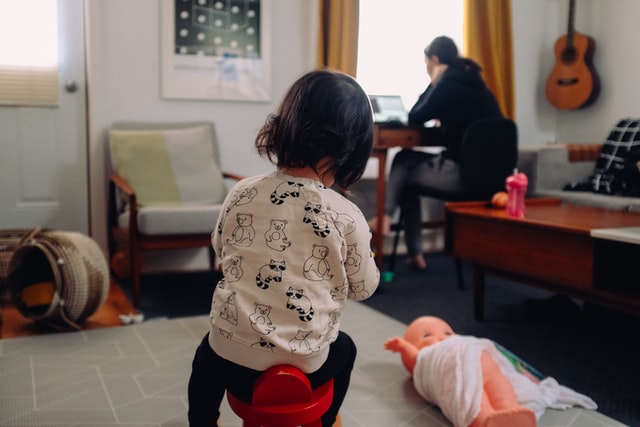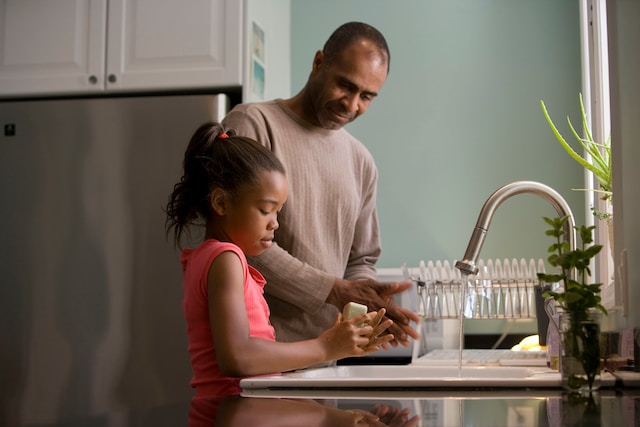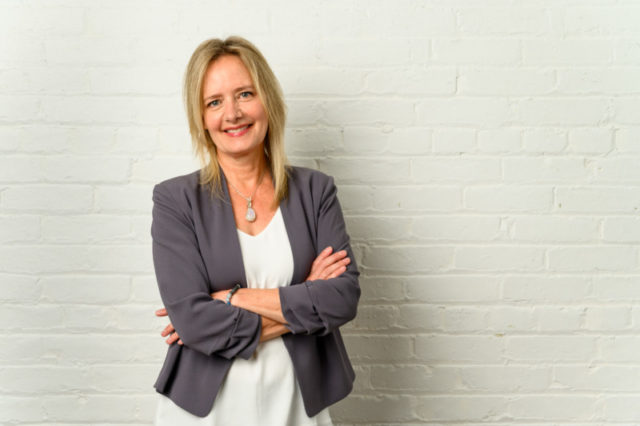Equality Starts at Home: Strategies to Create a More Equal Household for Everyone

We hear a lot about work life balance and how elusive that feels for so many of us these days. Turns out, if you’re a woman, that work life balance is harder to come by than for anyone else in our world. Every woman reading this is not surprised. Not only is there a ton of evidence about the additional labour women carry out at work in terms of communal tasks like planning offsites or workplace social events, having to work harder to get the same recognition as male counterparts, or work harder still to get promotions or prime assignments, it’s women who do the majority of household and care-giving labour too.
Things are getting better in terms of domestic labour and in younger generations in particular we see a closer to even split of tasks like cooking, grocery shopping, cleaning, laundry and maintenance. So that’s progress. But we still see huge gaps in two key areas; the first is in care-giving work, whether that’s caring for children, elders or others in the community, and the second is in the mental and social labour that maintains relationships, and family structures.
“Women are not going to be equal outside the home until men are equal in it.”
Gloria Steinem
Equality Starts at Home
We often think about women’s caring work in terms of child rearing, and yes, that’s a huge responsibility that many women carry. But most women without children or with grown children continue to do the majority of caring work. Women are more likely to look after aging parents or family members with disabilities. Women are or also more likely to participate in their communities through volunteer work or informal caring like checking in on neighbours and friends.
The idea of mental load and social, emotional labour is just beginning to be recognized. Mental load is keeping track of all the things that need to be done. It’s that ticker tape running through your mind. We all have this related to our work. But women tend to have a greater mental load related to home responsibilities.
This comes down to how we think about tasks in the home. For example, we often think of grocery shopping as just going to the store and buying the groceries, but there’s a lot more to it than that. There’s meal planning so you know what to buy, noticing when you’re getting short on something, making the grocery list, ensuring you’ve got the money in the bank to pay for the groceries, keeping track of what’s in the fridge so you don’t waste food, etc., etc. In many cases women continue to hold many of the mental aspects of the task, even when they don’t do the actual grocery shopping.
Social and Emotional Labour
Social and emotional labour are all the things that keep relationships, families and communities running. It’s phoning someone when you know they’re going through something, remembering Aunt Helen’s birthday and sending a card, organizing family get togethers, congratulating someone’s kids when they graduate or hit a home run. These kinds of tasks often sit with the women in any given household.

When we put all this together, it’s no surprise that UN Women reports that globally women carry out two and half times more unpaid and invisible household labour and care giving work combined than their male counterparts (1). Major life events or holidays amplify that demand, and many women report that with every passing event, whether positive or negative, they come back even more tired and depleted. Put it all together and it’s exhausting. Now that women make up 47% of the workforce (2), when are we supposed to find the time to do the work of caring and maintaining the relationships and family systems that are the glue of most communities?
There are two things that can get us started. Make the labour visible and then divide it up equally.
Make Household Labour Visible
Here’s a family tradition we started in our house last year, and I promise you it has made a huge difference. It goes like this. Whenever there is a busy time coming up, a holiday, a busy time with work or school, a transition of any kind, you all sit down together, adults, kids, everyone, and make a master list of all the tasks that will be required to manage whatever time period you’re looking at. As a family you can decide what goes on the list, which activities are meaningful, and if there are some that aren’t, do yourself a favour and just take them off the list. You can say no to some things. You don’t have to keep doing everything just because you did it in the past.
Be detailed and specific when making your list. Don’t just say “make dinner”, include the planning, the shopping, the prep, the cooking, the clean-up etc. Each part of making that dinner is a job. This step is all about making the labour visible. The list will probably be huge, and there will be people in your household who had no idea.
Divide Household Labour Equally
Once you have your master list, then you divide the tasks up equally. Yes, equally. If there are 4 of you, divide it in 4. Go around and have each person choose a task they like best first and continue until all the tasks are assigned. Every task needs to be done by someone and sometimes people will end up with a task they don’t enjoy. So be it.
If you have young children, they can and should absolutely participate in this. There will be some tasks they can’t do alone. But helping your kids do something is still a task on your list. So, the adults and older kids in the house need to divide up those helping tasks equally too. There’s no point in doing this if you’re still doing double or triple duty helping everyone else do their jobs.

Expect Push Back
People may complain about this new arrangement. That’s fine. Change always brings with it some resistance. They key is not to cave and revert back to doing it all yourself. The beautiful thing that can happen is, others in your household will begin to take pride in their contributions. We all want to feel like we’re doing something meaningful and important, kids included. This is an opportunity for everyone to feel good about what they’re doing to contribute to the needs of the household.
Equality Begins at Home
By doing this as a family or household everyone is learning exactly what it takes to pull together an event or holiday or manage through a busy time or a transition. By taking on new tasks they are also building the essential skillsets of household and care giving work. We have undervalued these kinds of tasks for so long, and yet if Covid taught us anything it was that care giving work is foundational to a functioning society. Everyone will require care at some point in our lives. But more importantly, your entire household, is learning what equality at home can look like. This is a huge gift to everyone in our households today and for those who have children it’s essential learning for them to create a more equal future.
This guest post was authored by Belinda Clemmensen

Belinda founded the Women’s Leadership Intensive with the mission to inspire, empower, support, and equip women to lead the change the world needs. Today she serves as CEO of the organization, a Certified B Corp. Her passion is for the potential for positive change when women lead at scale. Belinda has received the gold Canada Award for Excellence in training. She is a certified professional coach, training provider, and member of the International Coaching Federation. Learn more online at www.womensleadershipintensive.ca/. Check out her latest book on Amazon.
Citations:
- UN Women https://www.unwomen.org/en/news/in-focus/csw61/redistribute-unpaid-work#:~:text=From%20cooking%20and%20cleaning%2C%20to,and%20care%20work%20than%20men.
- Women in the Workforce: Canada (Quick Take), Catalyst, August 19, 2020, https://www.catalyst.org/research/women-in-the-workforce-canada/.
*******
Ms. Career Girl strives to provide valuable insights you can use. To see more from our columnists and guest authors, check these out! Or subscribe to our weekly email featuring our latest articles. We’re also present on Medium!


